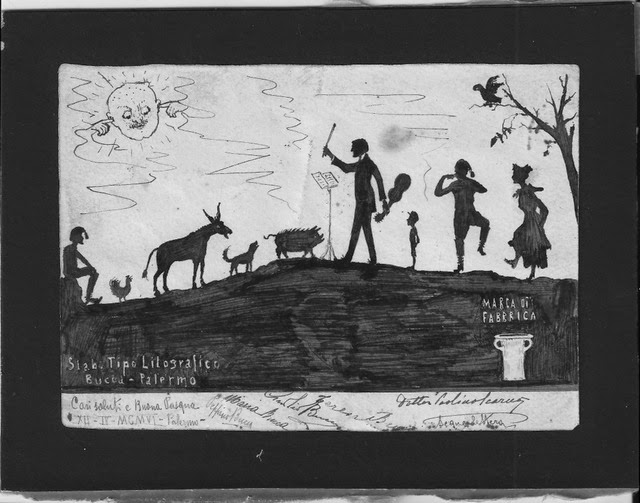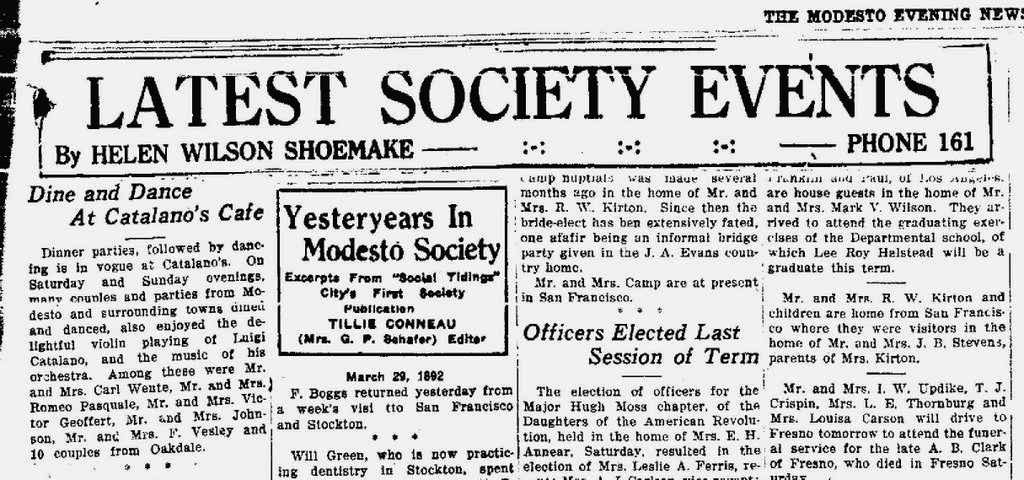Luigi Catalano, the future founder of the Napa Valley Symphony, was born in Lercara Friddi, Sicily, Italy, near Palermo, on November 29, 1881.
He attended the Palermo Conservatory of Music, where he studied violin and conducting. He found employment as the first violin in various orchestras in Italy and France.
 |
| This wonderful portrait of Luigi conducting, was signed in French on January 1, 1905, "From Paris, Best Wishes." |
VIRTUOSO VIOLINIST, MUSIC EDUCATOR, AND DIRECTOR OF THE NAPA CONSERVATORY OF MUSIC IN THE 1930s
Luigi Catalano in Paris, 1905
Happy Easter 1906, Palermo: Luigi and His Violin Conducting the Locals
Luigi Catalano Arrives at Ellis Island, New York City, September 1906
Violist Paolina Civiletti (Catalano) and Violinist Nelina Civiletti (Schiro), circa 1903
 |
Paolina Civiletti (later Catalano), 1903
|
The House in Pacific Heights where Luigi, Paolina and Nelina Played for Wealthy Music Lovers
Luigi Catalano, Director of the Strand Theater Orchestra, Modesto CA, 1921
At the beginning of 1921, Luigi and his family moved to Modesto, California from San Francisco so that Luigi could take up his new position as the Director and Conductor of the Strand Motion Picture Theatre Orchestra.
According to Wikipedia, "From the beginning, music was recognized as essential, contributing to the atmosphere and giving the audience vital emotional cues. Once full feature films became commonplace, however, music was compiled from "photoplay music" by the pianist, organist, orchestra conductor or the movie studio itself, which included a cue sheet with the film. These sheets were often lengthy, with detailed notes about effects and moods to watch for. Starting with the mostly original score composed by Joseph Carl Breil for D.W. Griffith's groundbreaking epic The Birth of a Nation (USA, 1915) it became relatively common for the biggest-budgeted films to arrive at the exhibiting theater with original, specially composed scores.
By the height of the silent era, movies were the single largest source of employment for instrumental musicians (at least in America)."
 |
Catalano Family Homes in San Francisco
A Musical Gift from Luigi's Former Music Professor
Vespertina, A Medieval Song for Violin and Piano, by Rosario Profeta
of Palermo, Sicily, Italy
Illustration by F. Cutino
The printed dedication reads (in French): To Mademoiselle Altes Lycresy,
In the days of happiness...
 |
| Add caption |
The handwritten inscription reads: To My Dear Luigi Catalano, whose artisitic merit is equaled by his integrity- [From] His old teacher, R. Profeta. It is dated the 22nd of August, 1928.
Subscribe to:
Comments (Atom)








%2B-%2BMozilla%2BFirefox%2B962014%2B70445%2BPM.bmp.jpg)




















